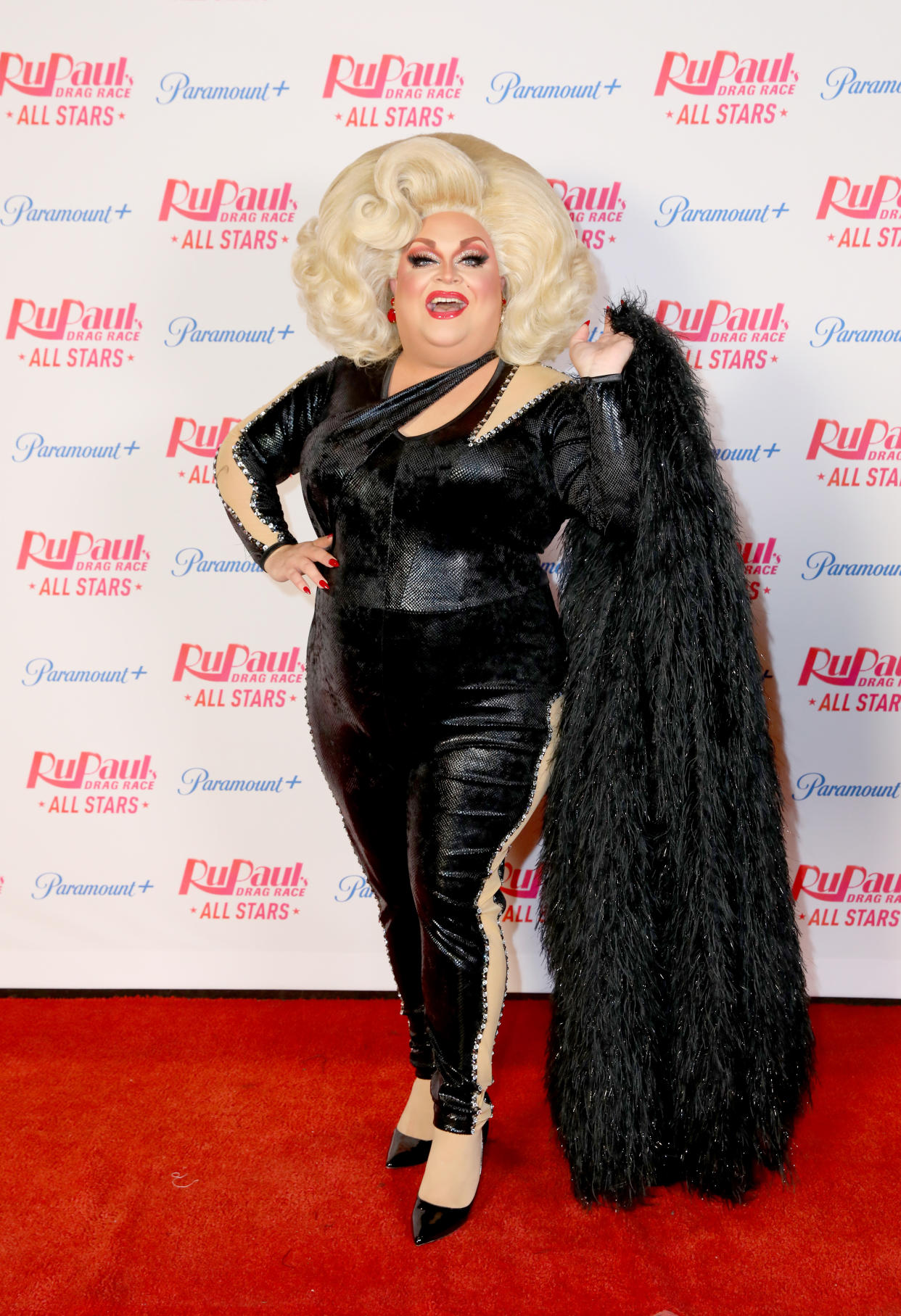Drag queen Ginger Minj on staying in Florida amid anti-LGBTQ laws

Ginger Minj is arguably one of the most recognizable faces to have come out of RuPaul’s Drag Race, the campy reality competition franchise helmed by RuPaul that seeks to find America’s Next Drag Superstar.
Though Minj hasn’t technically won a season yet (she’s appeared in three seasons of the Drag Race franchise), it hasn’t stopped her from achieving crossover fame. The queen has become a highly sought-after headliner in queer nightclubs across the country, and has even appeared alongside Jennifer Aniston in Netflix’s Dumplin’ and Bette Midler in Disney+'s Hocus Pocus 2.
Still, despite her success, Minj is the first to admit that now is a scary time to be a drag queen — especially in her home state of Florida, where drag queens and a range of LGBTQ issues are in the crosshairs of a sustained culture war through proposed legislation that would, among other things, ban minors from attending drag shows; that follows a series of bills introduced in at least 16 states, including Tennessee, Arizona, Kentucky, Oklahoma and others, seeking to do the same.
“Drag is a threat to people who don't understand it,” Minj tells Yahoo Entertainment. “On the surface, you see these really strong people who are very confident. They go out there and say, ‘This is not right’ and ‘We demand change’ and ‘Cure this' or 'Cure that,’ but if you look at people like us, and you don’t understand us, it can be a very scary thing.”
Minj, who started her career performing at Pulse Nightclub, the gay club in Orlando that became the target of a 2016 mass shooting, the largest in American history at the time, recalls the anxiety she felt after that tragedy — and how recent attacks have triggered past memories.
“It really shook the community, the whole world,” says Minj, who was touring the country with other Drag Race stars at the time of the Pulse shooting, so compromising their safety that FBI agents had to escort them on their remaining stops.
“‘You're all moving targets,’” she recalls the FBI saying. “‘You are 11 of the most famous drag queens in the world, and from now on we're going to have agents meet you at every stop you go to, and there will be an evacuation route.’”
For Minj and other headlining drag queens, performing at the risk of one’s own safety became the “new norm” in the years after the Pulse Nightclub shooting. The trauma and anxiety escalated further after the 2022 shooting at Club Q in Colorado. Now, she says, as politicians continue their "crusade" against the LGBTQ community by limiting access to drag performances, she's haunted by bouts of anxiety.
“It’s just so sad to me, and so nonsensical,” she says of the rising anti-drag sentiment coming from conservative politicians. “It breaks my heart, but it also fuels that fire to be like, No. I have not fought as hard as I have for as long as I have to let anybody take it away or intimidate me into not doing it.”
That’s why she refuses to let fear push her away from the state she loves.
“If you want to party in our spaces, you gotta help us keep them safe,” she implores. “I get to travel the world and go to all of these places where this isn't particularly an issue, where people embrace us and they love us and we can step on stage without feeling like, Oh, my goodness, what's going to happen? Am I being targeted? Am I going to be attacked? The initial reaction is: I should just move to one of those places. I should sell my house, pack up my dog and go someplace that loves and accepts me. And then I stop and think about it, and I go, No. This is my home, too.
"I grew up here, I have worked for years to make a difference in this community," she adds. "So, it wouldn't be fair to me or anybody in it if I abandoned it and moved away. I need to stay here. I need to work and I need to fight."
To that end, Minj says she's gearing up for her most exciting gig yet, in which she fully plans on reminding audiences that drag is not only political, but also “the pinnacle of joy and fun” for all ages.
During the weekend of April 1, Minj is headlining Golden Con, an event where hundreds of Golden Girls fans flock to Chicago to celebrate everything they love about the hit 1980s sitcom. In a time when drag has become a hot-button issue, Minj hopes the celebration can be a time for unity, strength and friendship. (Just don't ask her to make the Golden Girls's favorite treat: “I have never successfully baked a cheesecake,” she admits. “That's why I have to go to the convention, so that I can get the cheesecake that's already there!”)
Minj says she’s optimistic for the future of drag, which is why she’s especially focused on equipping the next generation of artists with lessons she wished she had access to growing up.
“That’s really what my whole career has shifted to at this point — trying to share my story with the next generation of drag artists, or queer kids,” she says. “When I was growing up in Leesburg, [Florida,] there was nobody like me, so I am very grateful I am one of many who get to be that for this next generation.”
She adds: "I don't want to preach to people. That's not my goal. I like to have fun with people, and if they learn something along the way, then hey, that's great!"
